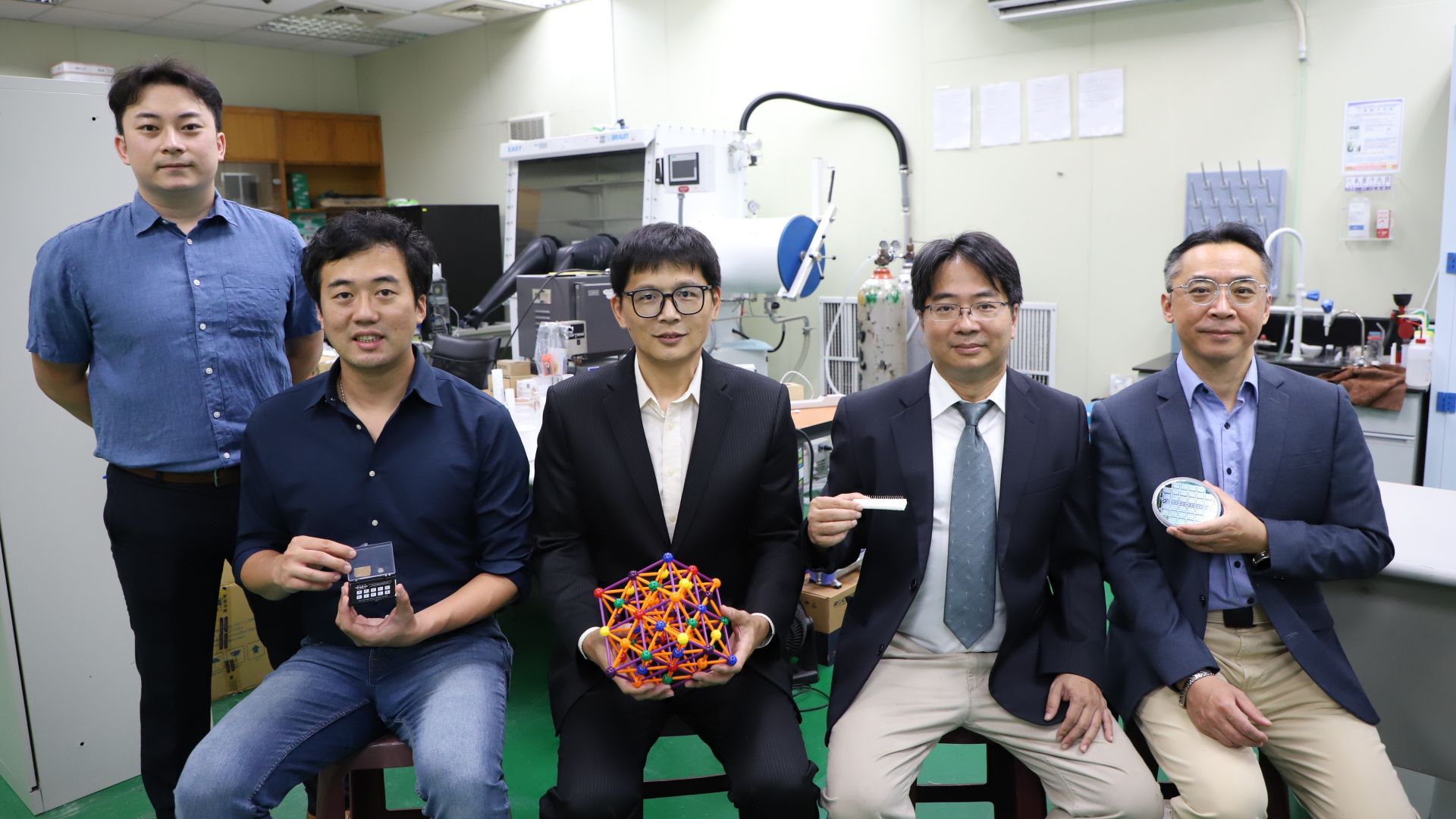The finals of the second "Grand Challenge: Cross-Disciplinary Innovative Applications" Competition at NCKU featured 46 teams
The second "The Grand Challenge: Cross-Disciplinary Innovative Applications" competition was divided into four major categories: Engineering Computing, Social Computing, Health Computing, and Innovation Computing. The content covered various aspects of life, from smart technology to engineering science, from humanities and legal issues to social topics, from medical health to agriculture and livestock, and from quantum applications to future technologies that promote national and societal progress. The finals began at 10 a.m. and featured a full day of exciting presentations and exchanges.
This year’s competition chair, Jen-Wei Huang, Director of the Master’s Program in Intelligent Technology Systems, explained that the Miin Wu School of Computing aims to promote the innovative application of smart computing technologies across multiple fields, with the United Nations’ Sustainable Development Goals (SDGs) serving as the core guiding principle. The number of teams increased by over 40% compared to last year’s nearly 100 teams, with 143 teams participating this year and 46 advancing to the finals, demonstrating a diverse range of projects.
“We hope this competition will become an internationally recognized, forward-looking interdisciplinary computing competition in the future,” Jen-Wei Huang said. This year’s event saw students from nearly 20 universities, including NCKU, National Taiwan University, National Tsing Hua University, National Chung Cheng University, National Taipei University, and Feng Chia University, competing against one another. He mentioned that many excellent projects emerged in the preliminary rounds, and whether or not teams won awards, he was grateful for their efforts in creating and showcasing their work. The judging criteria focused on the degree of interdisciplinarity, innovation, practical application, and the breadth of the topics. The judging panel, composed of experts from both academia and industry, not only evaluated algorithmic creativity but also emphasized practical applicability. He encouraged students to take advantage of the finals as an opportunity to learn from each other, enjoy the process, and improve their work.
Qi-Min Zhang, a student from National Yang Ming Chiao Tung University, whose team won the silver award in the Health Computing category, said that their team members came from various fields, including the College of Science, Biomedical Science, and Computer Science. They were honored to participate in this competition with their project titled "VR-BCI Rehabilitation Smart Medical System." As the first team to present in the health category, they were thrilled to win the silver award. Zhang added that the most valuable part of the competition was witnessing how computing technology is applied in different fields and seeing the creativity of other teams.
"Although we didn’t win an award, the feedback from the industry judges was the most valuable experience," said Lai, a third-year master's student from NCKU's Department of Mechanical Engineering, who competed in the Health Computing category. Their project, "Virtual Hand Joint Reconstruction System," designed an app that allows users to create 3D models of their hand movements by simply taking a photo, helping them identify issues with their hand muscles and bones. Lai’s teammate, Zeng, a second-year master's student, expressed gratitude for the judges' insightful feedback. She noted that academic and industrial perspectives are often different, and while their idea may have seemed idealistic, reality can be quite different. The judges helped them identify the core issues of their project, and they look forward to presenting better results next time.
A team composed of NCKU students Teng-Yuan Zou (Electrical Engineering), Shih-Yu Lai (Psychology), Xuan-Jing Chen (Industrial and Information Management), and Rong-Cang Ye (Electrical Engineering) won the gold award in the Social Computing category for their project titled "Tainan District Land Value Adjustment Recommendation System Based on Spatial Feature Extraction and Visual Interface." In Taiwan's current tax system, land value adjustments for property tax purposes are calculated manually, which is labor-intensive and time-consuming. Their project integrated current and historical land value data with Google Maps to establish a more efficient, objective, and fair system. Thanks to their thorough report and smooth presentation, they impressed the judges and became the only team to win a gold award across the four categories.
The 2024 Paris Olympics concluded on August 11, and NCKU Computer Science student You-Xiang Chen, who is passionate about volleyball, competed in the Innovation Computing category with his project titled "Multi-Perspective Volleyball Trajectory Reconstruction and Analysis System." Volleyball players often rely on designated recorders to track game data, such as serve reception and tactical execution, to understand their performance. Chen developed a fully automated detection and recording system using image recognition and big data to help players analyze their training results. His project won the silver award in the Innovation Computing category due to its high level of completion.
National Tsing Hua University Computer Science students Bo-Jun Lin and Jia-Hua Li won the silver award in the Engineering Computing category with their project, "HGAP: Enhancing Permutation Invariance and Equivariance in Multi-Agent Reinforcement Learning through Graph Attention Networks." Hyper Graphical Attention Policy (HGAP) is a system that strengthens multi-agent systems in multi-agent reinforcement learning (MARL) tasks through a graphical attention mechanism. HGAP combines AI with engineering computation to create a more accurate deep learning system, breaking through the limitations of traditional computational frameworks. This method was also accepted and presented at the prestigious ICML (International Conference on Machine Learning).
The second "The Grand Challenge: Cross-Disciplinary Innovative Applications" competition showcased smart computing applications in urban and traffic management, energy and environmental monitoring, humanities and legal studies, material and sensor analysis, healthcare, and intelligent solutions for agriculture and fisheries. By combining efficient data analysis with deep learning applications, the competition fostered innovative, sustainable interdisciplinary practices. The final judging panel consisted of 16 distinguished scholars and industry experts from various fields. From poster presentations and project demonstrations to interactive Q&A sessions with students, the competition provided diverse perspectives and invaluable feedback. Many participating students expressed that they "gained a lot and look forward to competing again next year!"

Second "The Grand Challenge: Cross-Disciplinary Innovative Applications" Project Practice Competition took place on August 17 at the Macronix Hall, NCKU Innovation Center.
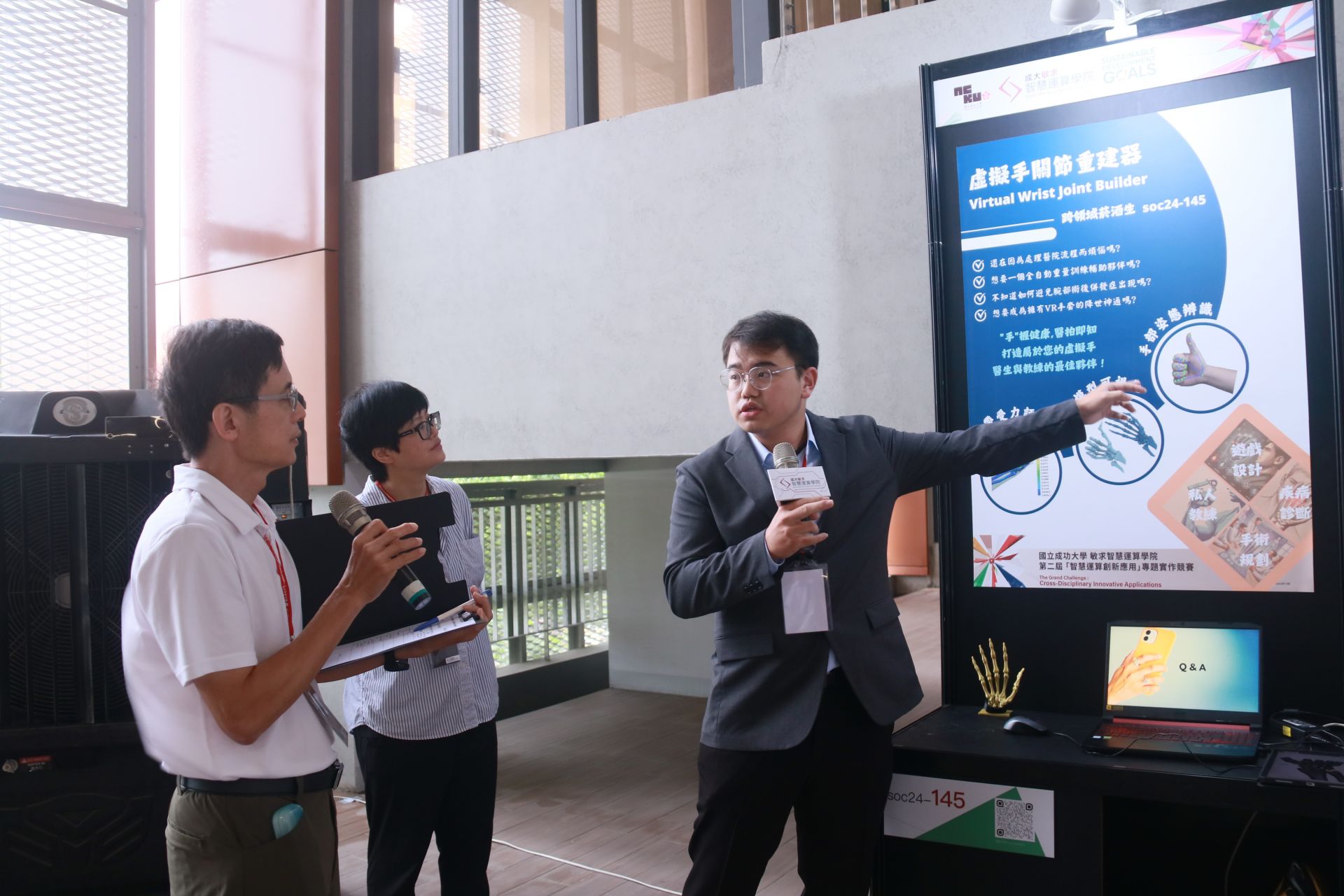
The students from each team put in their utmost effort to showcase their research.
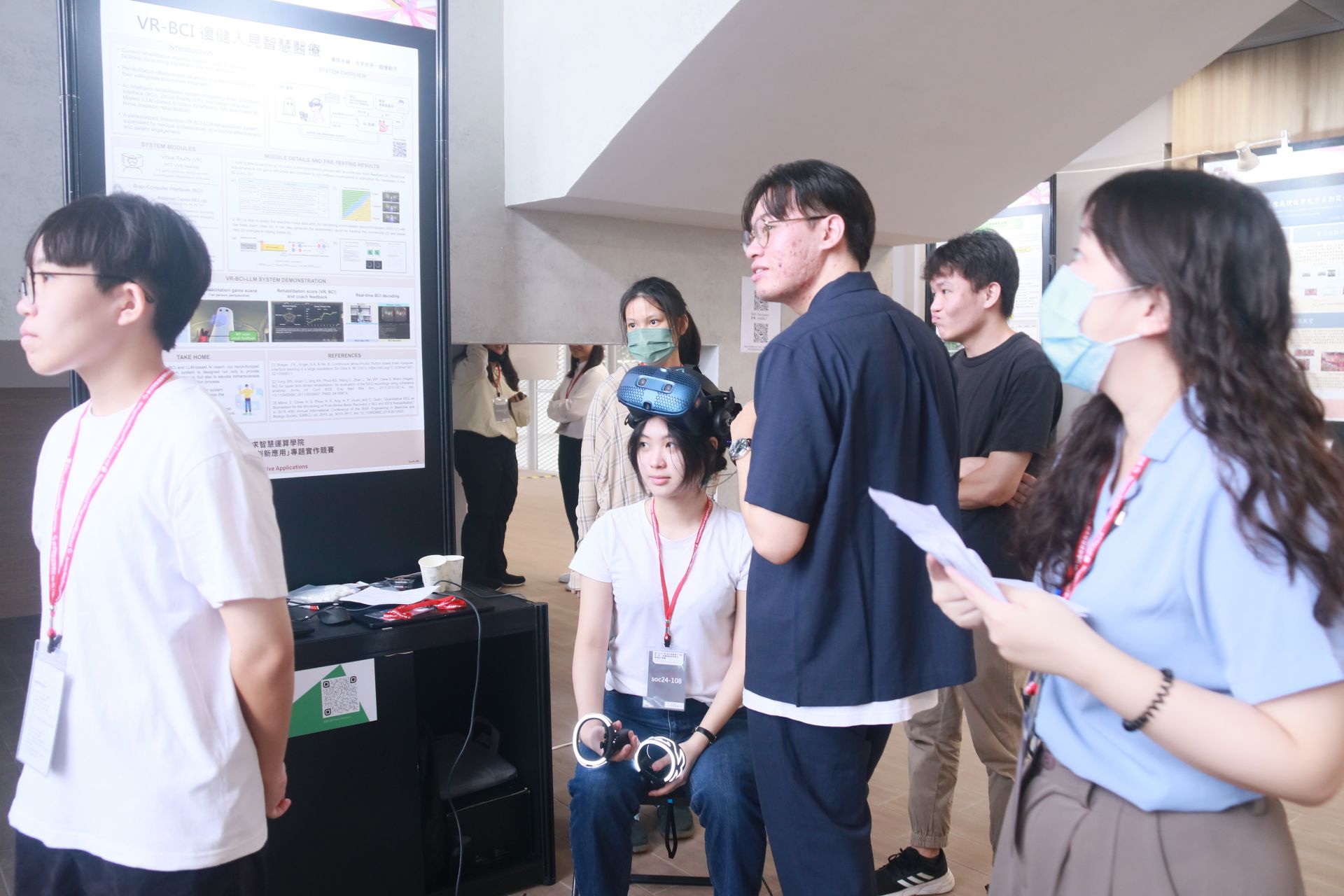
The competition process is a valuable opportunity for each team to observe and learn.
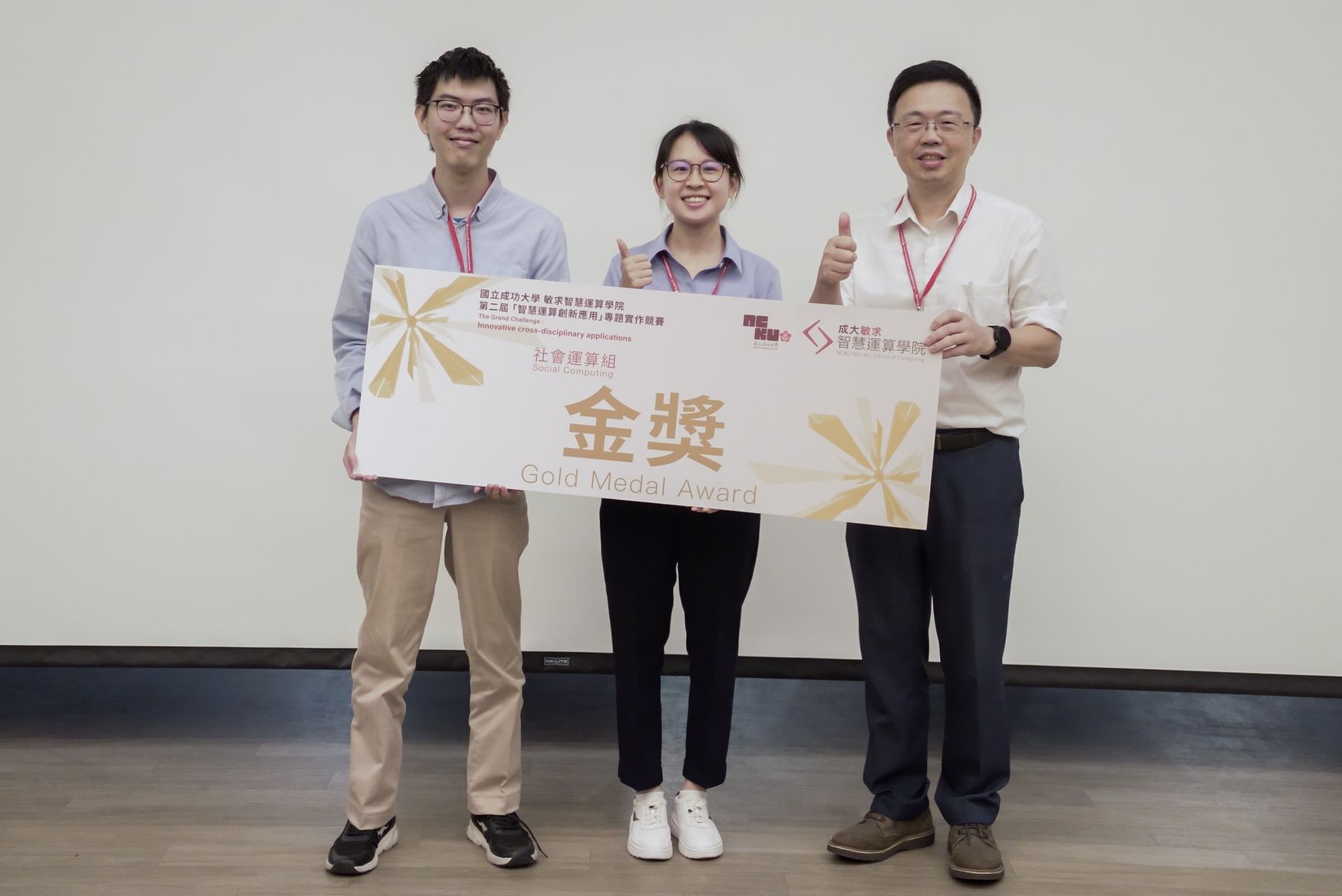
Jung-Chang Yeh, a student from the Department of Electrical Engineering at National Cheng Kung University; Hsuan-Ching Chen, a student from the Department of Industrial and Information Management; and Cheng-Hung Lin, Associate Director of the AI Interdisciplinary Research Institute at National Taiwan Normal University (left to right)

The competition is divided into four major categories, with each category having a wide range of applications that cover various aspects of everyday life.
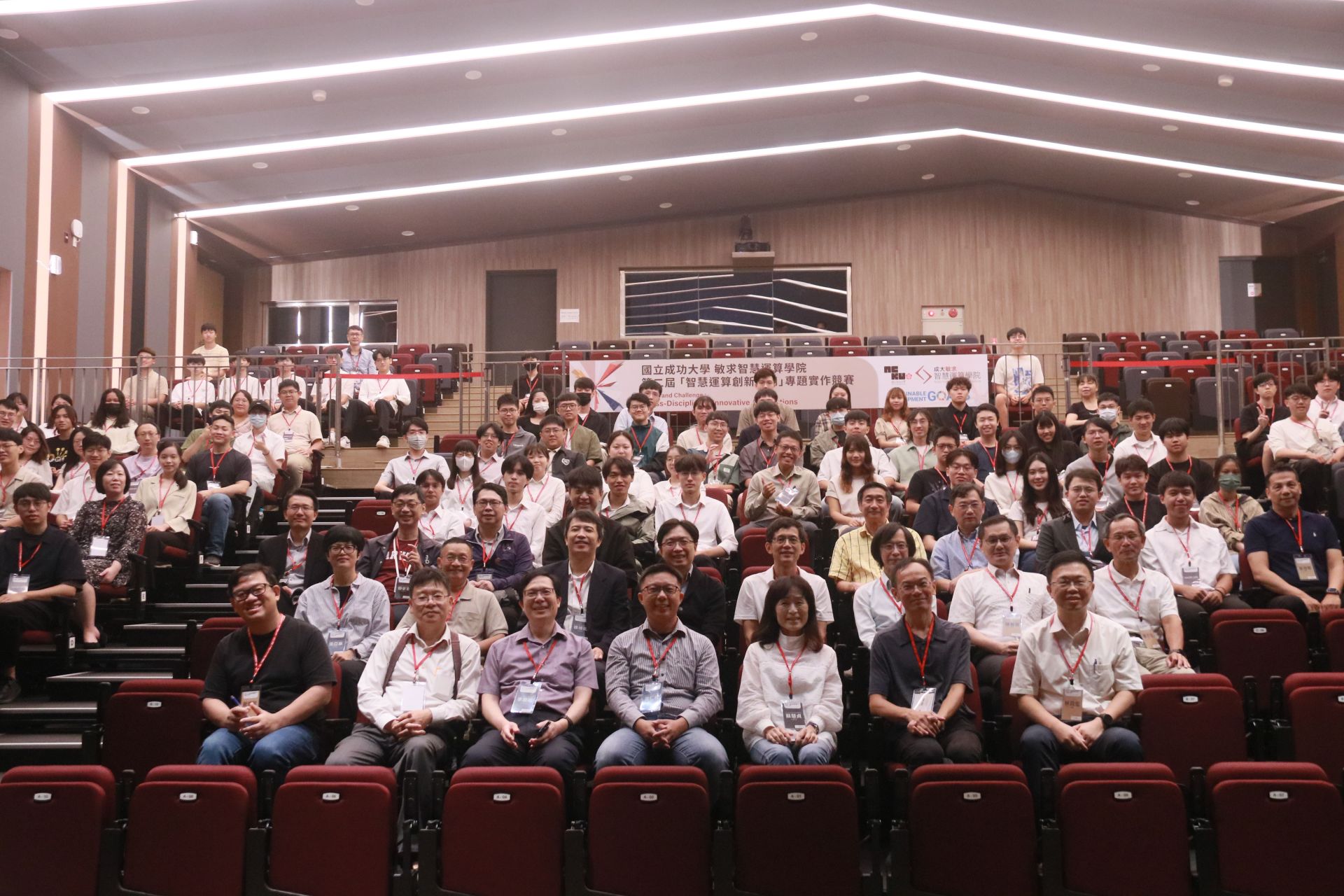
Second "The Grand Challenge: Cross-Disciplinary Innovative Applications" Project Competition: Group Photo of Participating Students and Professors

SDG9Global Policy Leader Gergreizer Urges People to Reclaim Human Judgment in the AI Era at NCKU Lecture
View more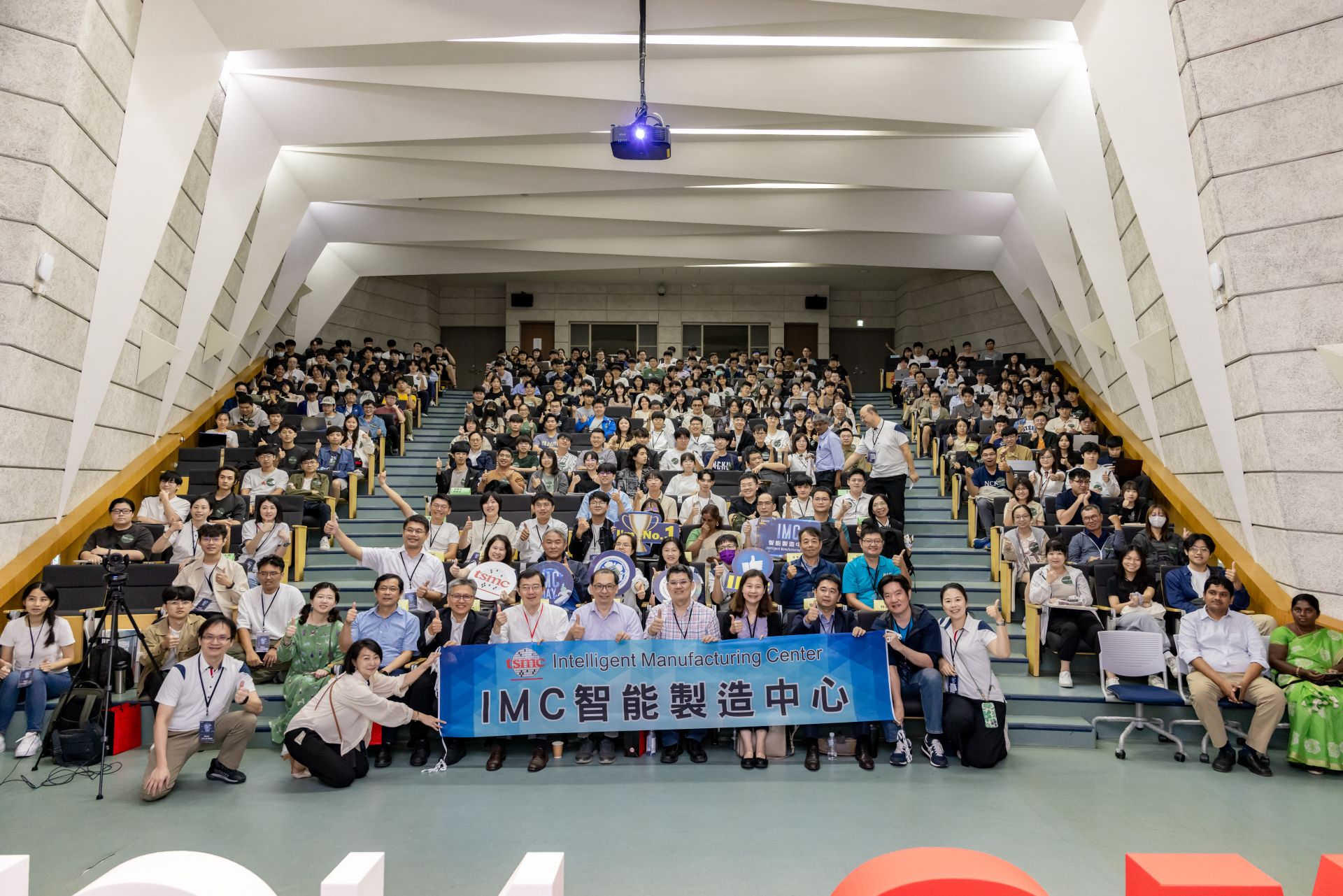
SDG9NCKU Department of Computer Science and Information Engineering and TSMC Host 2024 IMC DAY
View more